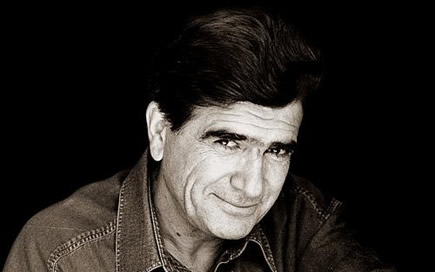Mohammad Reza Shajarian, one of the most important performers of Persian classical music, passed away today, October 8, 2020 in Tehran, Iran. Shajarian’s son, acclaimed vocalist and tombak player, Homayoun Shajarian, disclosed the news in an announcement on Instagram, stating he “flew to meet his beloved“.
Mohammad Reza Shajarian was a living legend In Persian classical music, with one of the most distinguishable voices in Iran. His vocal style was enjoyable, soulful, and energetic. Shajarian was regarded as a national treasure and was a key source of inspiration for musicians and music lovers. His singing was technically faultless, powerful, and emotional. In the music of Iran, traditional singing is the most demanding art to master, but Shajarian achieved this at a very early age.
Born in 1940 in the city of Mash’had in northeastern Iran, Mohammad Reza Shajarian started singing spiritual songs at the age five under the supervision of his father. Only a few years later his gifted talent was to be renowned throughout the town of Mash’had. His effort at first was on the local folk music of his native province, Khorasan (East Iran). At the age of 12, Mohammad Reza Shajaria was familiarizing himself with the traditional song repertoire, studying the Radif, but he also became interested in traditional music from Khorasan and the other regions of Iran.
Shajarian became a schoolteacher and had liberty to study all forms of traditional music and gradually relinquished religious singing. On his arrival in Teheran, Shajarian met Ahmad Ebadi, the great setar maestro. He studied under some of the most distinguished artists such as Reza Gholi Mirza Zelli, Ghamar-ol Molouk Vaziri, Eghbal-Soltan Azar, Taaj Esfahani Noor-Ali Khan Boroomand and Taher Zadeh Esfahani.
Shajarian began playing the santur under the instructions of Jalal Akhbari to better understand and perform the traditional repertoire. In 1960, in order to improve his technique, became the pupil of the santoor Maestro Faramarz Payvar which led to his acquiring perfect interpretative skills as well as masterful execution on instrument phrases transposed for the voice. One of the more significant events in his life was his encounter with the great master Abdollah Khan Davami, who was to convey to him the most ancient Tasnifs (songs) and the authentic version of the Radif which had been passed onto him by the greatest masters of the previous century.
Rising to prominence in the 1960s with his unique style of singing, Mohammad Reza Shajarian led an memorable career that included teaching at Tehran University’s department of Fine Arts (among other places), researching the musical arts of Iran, and working at the Iranian National Radio and Television. He performed regularly in Iran and throughout the world, and his performances brought him universal acclaim and an eminent position among his compatriots.
Besides his tremendous musical talent, Shajarian had a lifelong passion for Persian Calligraphy. Since 1967, he practiced this art under the instruction of two Iranian master calligraphers, Ebrahim Buzari, and Hossein Mirkhani.


